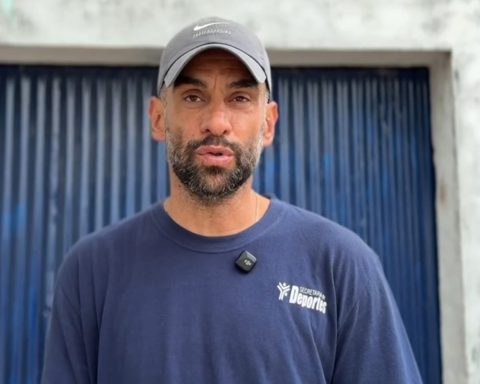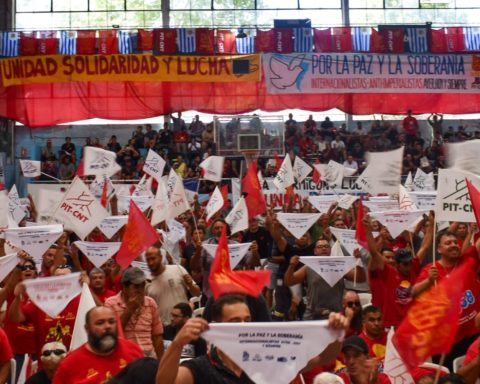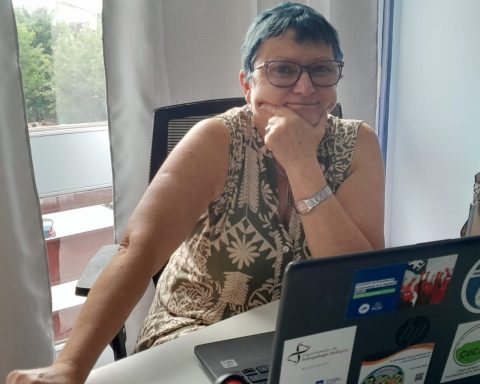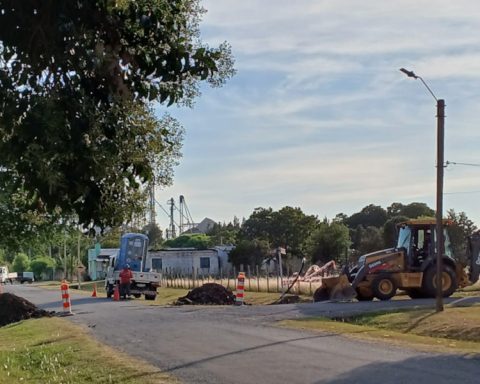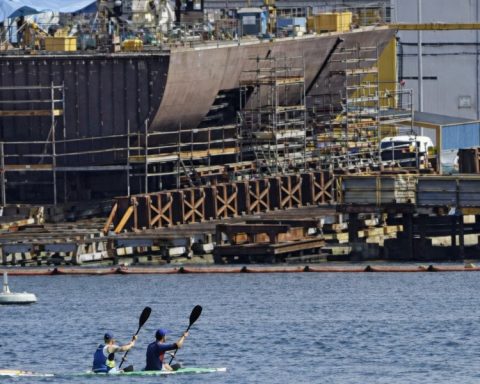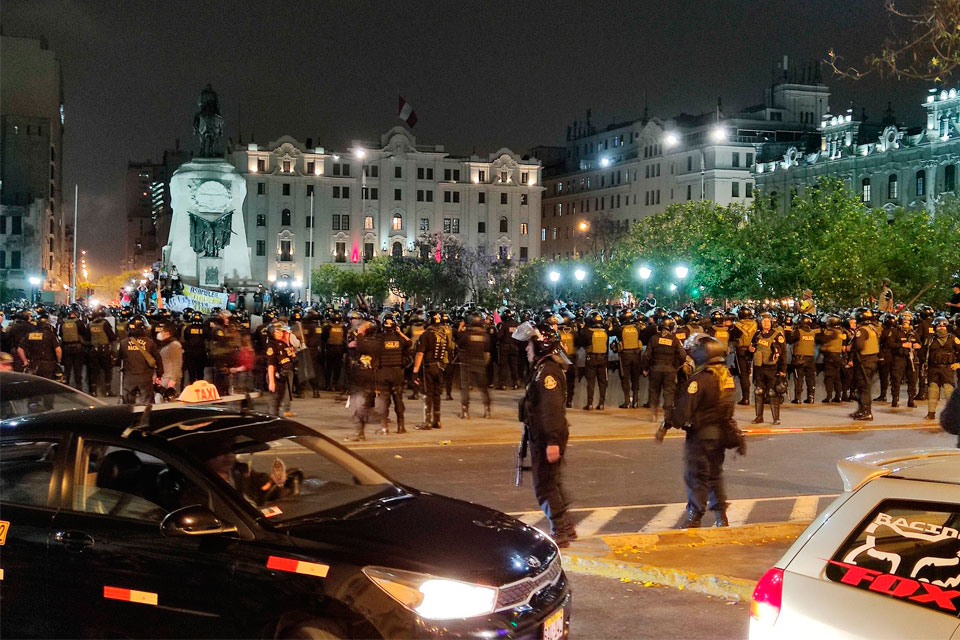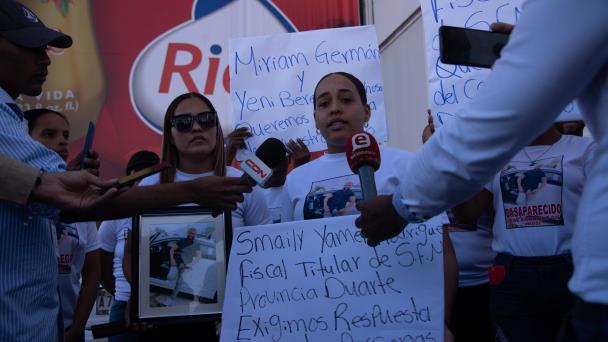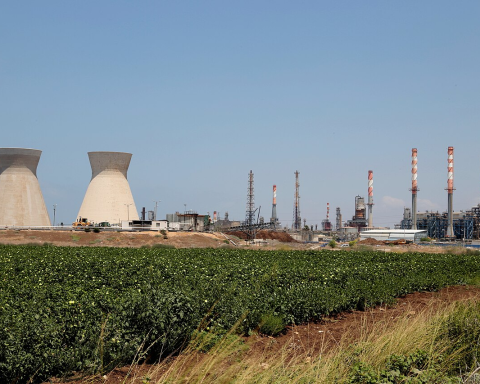The bars full of people and the evidence of a crime in full view of all who wanted to see it. That was the romantic dream brought by the new Criminal Procedure Code that came into effect in November 2017. But the dream became a reality in a more earthly version. Those who sit down to listen to the trials are generally relatives —of the victim or the perpetrator— or journalists. In addition, according to official figures from the Prosecutor’s Office, close to 85% of cases are resolved through abbreviated agreements. Therefore, this procedural debate and the presentation of the evidence take place indoors between the prosecutor and the defense attorney, who, after reaching an agreement, validate the decision before a judge.
There is a type of prosecutor’s office in which 85% is 100%: those that investigate public corruption. The Economic and Complex Crimes prosecutors did not have any trial —at least concluded— between November 1, 2017 —the entry into force of the new CPP— until September 29, 2022, according to a request for access to information public that made The Observer to the Attorney General’s Office. The ideal of a trial with oral and public hearings, where the prosecution and the defendant’s defense were measured before the judge of the case and in full view of all, in these cases did not exist.
Once there is a complaint assigned, avoiding the oral trial has three alternatives: agreeing on a sentence between the defendant and the prosecutor that is later validated before the judge —abbreviated agreement—, the file —exemption of responsibility— and the simplified process, introduced in the Law of Urgent Consideration in 2020. This is a process that emulates that of the oral trial —there are public hearings in which the evidence is shown to the judge— but with shorter deadlines. The use of this procedural route is not yet discriminated by the prosecution when formulating statistics —abbreviated agreements and simplified processes count together—, but its implementation has been residual. The abbreviated agreement implies that the defendant assumes the commission of the crime and can obtain in exchange a reduction of up to a third of the sentence. This agreement, which is formulated at the tax office, is then validated before a judge.
The Economic and Complex Crime Prosecutors, from November 2017 to 2022, entered into 731 abbreviated agreements (and/or simplified processes) and 24 reparation agreements. There are three shifts of this type of prosecutor’s office and one of them, the one headed by prosecutor Gilberto Rodríguez, was created a year ago – it was inaugurated in December 2021. The first to be created —November 2017— was the 1st shift, which is in charge of Enrique Rodríguez. A year later, Ricardo Lackner inaugurated the 2nd Shift.
The main causes of public corruption denounced in that period are still under investigation – that is, the prosecutor did not have to opt for any of these avenues yet. They are the escape of Rocco Morabito -began in 2019-, the alleged irregularities in the construction of the Antel Arena and in the management of the Ministry of Social Development denounced in 2020. In the last two weeks, the prosecutor Gilberto Rodríguez decided to archive the investigations for the agreement for the concession of the Port with Katoen Natie, the complaint for the alleged irregularities committed by Germán Cardoso at the head of the Ministry of Tourism —continues the one that weighs on his associates— and the case for the leak of the Intelligence document. In the first two cases, it was because the prosecution understood that there was no criminal offence. In the last one, because there was no way to check where the document came from.
Why are there no trials in complex cases? The reasons are various. The first thing that actors and technicians put on the table is the difficulty of taking a case to trial. The quantity and quality of the evidence that must be put on the table keeps prosecutors and lawyers sleepless for days to be able to order it in a way that is, for their counterparts, irrefutable. This is already the case in a common case —of crimes against life or property—, but when the case takes such complex edges —such as money laundering or public corruption— it becomes even more difficult. It is safer for both parties that the chances become an agreement or the file. Going to trial takes longer, and that can mean that a witness turns around and decides not to testify.
“The fact that they do not have trials must have particular reasons in each of the shifts, of strategies, but in general lines it must also be highlighted that, to attend to the complexity of these cases, the resources that are available are not the more suitable. Three prosecutors work per shift, like any other prosecutor’s office, and they have two or three administrative officials and a technical coordinator. When it is obvious that other expertise is needed for that matter: accounting knowledge, training in various areas. This combination with the police would lead to the possibility of having trials being more affected ”, he explained to The Observer Willian Rosa, president of the Association of Prosecutors. Although they have technicians who help them, it is not enough help.
Criminal lawyer Jorge Barrera —who has defended the government in various cases dealt with in these prosecutors— added another point to the discussion. Several of the cases designated as “public corruption” were later diagnosed as an administrative error or bad political decision and this is not punishable by law – the Penal Code is clear that, for example, in the crime of abuse of functions there is to prove the fraud, the intention to do the damage. “I see with concern a tendency to settle purely partisan political issues within the criminal sphere. Criminal law has particularities that are different from administrative law, not all administrative irregularities are crimes. Criminal law is required to do things that it cannot give, ”he pointed out.
For her part, her colleague Laura Robatto —secretary of the Association of Criminal Lawyers and lawyer for the Broad Front in various cases brought before these prosecutors— highlighted The Observer that this is due to “the very structure of the trial” since, with the new CPP, “the prosecutor has to be very sure of the evidence he is carrying.
“Why is it so hard now? With the old Code, a vice president was prosecuted and a minister, a director of Banco República, and deputies were sentenced. Why was it done? Because the scheme they built makes the trial impossible (…) The new CPP requires a number of steps and movements that when a prosecutor, in these cases, formalizes, he should have the accusation more or less prompt, “he explained, referring to that you have to be several steps ahead in the investigation.
The lawyer expressed that she understands that, with the new Code, “the material truth” is no longer sought, but “the resolution of the conflict.” “So what is sought is an agreement. If I do not have the material evidence to resolve the conflict and the person does not accept it, I end up filing. Politicians are not going to make a transaction, so it is archived (…) A simpler trial must be made for the search for material truth to be effective, ”she opined. In this sense, she appreciated that in the accusation control hearing stage —which is the one in which it is decided which evidence will go to trial— a lot of material is cut off. “They have been in charge of making something difficult that is simple, all the evidence would have to enter and the judge would assess it,” she said.
The court prosecutor, Juan Gómez, told El Observador that although he preferred not to refer to the specific case because it concerns the strategies of each prosecutor, he reported that they are preparing the objectives of the institution for 2023 and that one of them is to increase the number of oral trials.

